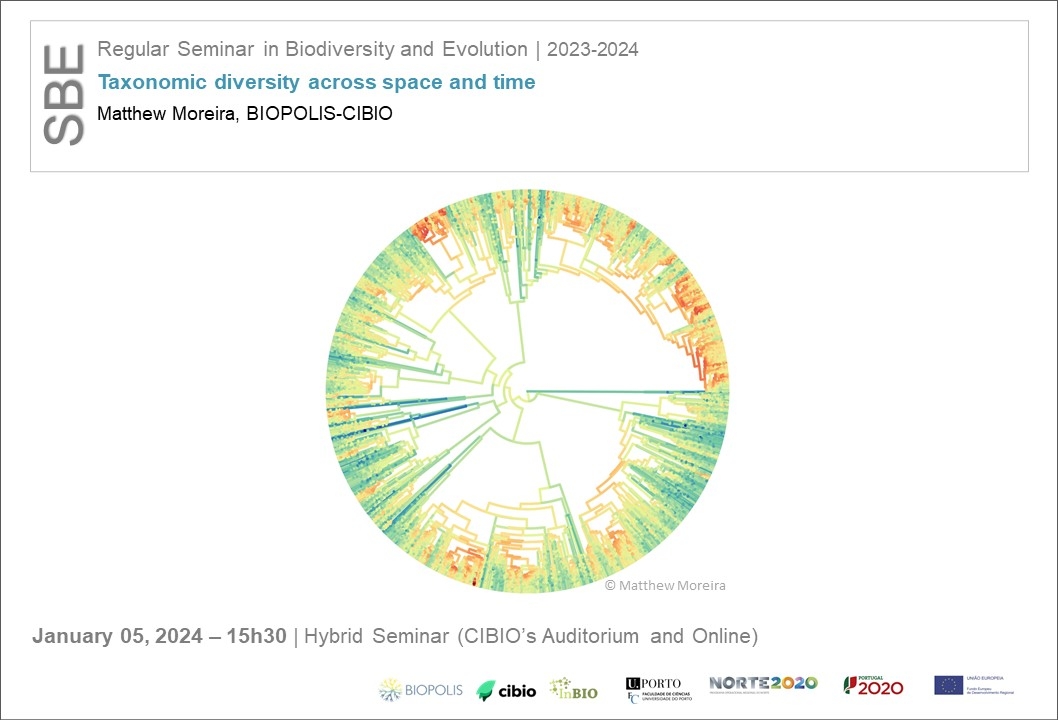Taxonomic diversity across space and time
Event
REGULAR SEMINAR IN BIODIVERSITY AND EVOLUTION
January 05th, 2024
Matthew Moreira, BIOPOLIS-CIBIO| 15h30 | Hybrid Seminar

REGULAR SEMINAR IN BIODIVERSITY AND EVOLUTION
Biodiversity is not homogeneous across space or time, resulting in distinct species richness patterns that have led many ecologists and evolutionary biologists to a central question: why certain clades/traits in the Tree of Life and/or in different regions on the planet have outstanding taxonomic diversity, while others remain species-poor? There are a set of non-mutually exclusive causes that can influence species richness patterns, generally involving time, diversification, dispersal, or transition rates among states of a character. Overall, diversification (speciation rates minus extinction rates) is a consistently important factor driving species richness patterns, leading to an additional question: what explains variation in diversification rates? Species' traits (e.g. ecology, physiology, morphology, life-history) are an important driver of diversification. Identifying which traits are related to diversification, or even how different species’ traits evolved, can help understand the uneven distribution of species richness. Ultimately, it is crucial to pinpoint the mechanisms that foster (or imperil) the build up of taxonomic diversity.
Matthew is an Ecologist and Evolutionary Biologist passionate about identifying general evolutionary patterns that may apply to all organisms. He holds a BSc in Biology, a MSc in Applied Ecology and a PhD in Biology and Ecology of Global Changes. His main research interests are in evolutionary ecology, macroevolution and global change, focusing on evolutionary trends, taxonomic diversity and diversity dynamics in land vertebrates. He uses bioinformatics, phylogenetic comparative methods (e.g. diversification, trait evolution, trait-dependent diversification), phylogenetic inference and data visualisation applied to large-scale datasets.
[Host: Sílvia Carvalho, Biodiversity of Deserts and Arid Regions - BIODESERTS]
Click here to watch the seminar recording
